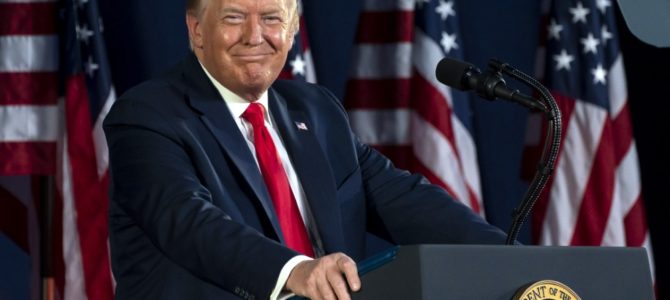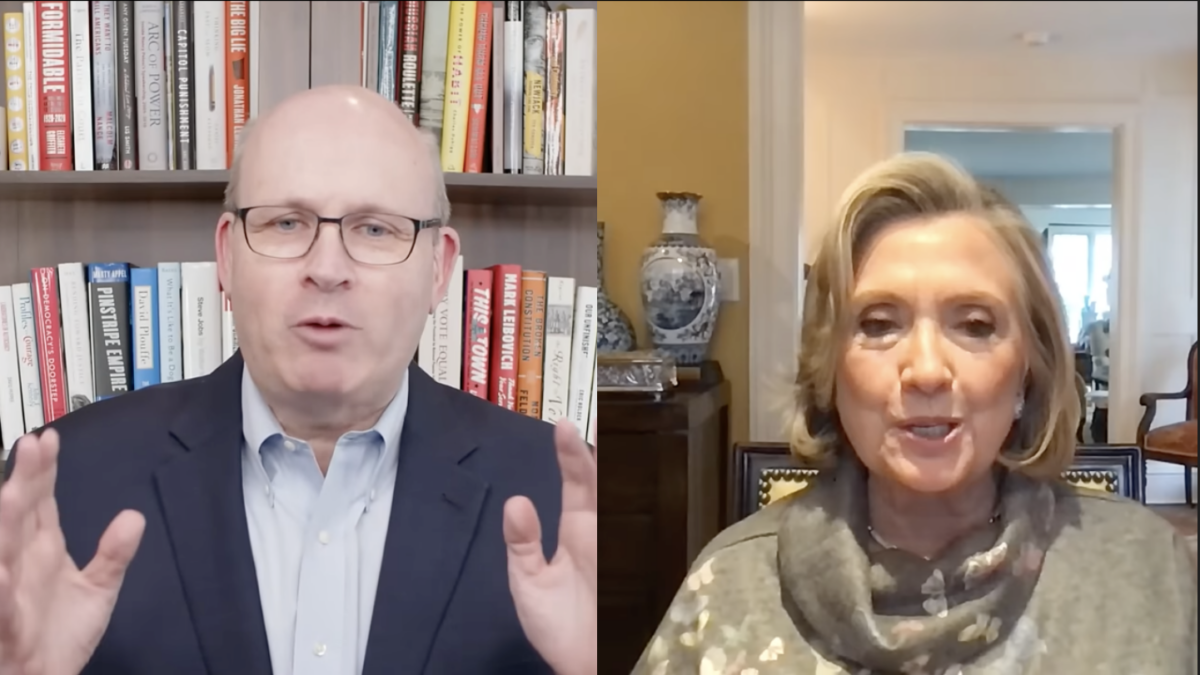
The day President Trump defended Walt Whitman at Mount Rushmore, a professor writing for the Washington Post argued it is time to rethink the global legacy of American independence founded on racism and predicated on white supremacy. This wasn’t just media bias. The timing and tone betrayed an agenda.
There is a reason many Americans consider corporate media and academia the twin enemies of the people. These two entities place themselves not as neutral arbiters and analysts of historical events, but as cheerleaders for the official opposition, effectively declaring themselves against half the country’s population and their views. As Rich Lowry pointed out in National Review, judging by the media’s coverage of the Mount Rushmore speech, the entire concept of nationalism and patriotism is slowly being joined with the accusation of “white supremacy.”
The larger issue, however, is bigger than that. It is not just about media coverage or bias. It is about academic concepts — formerly fringe thoughts that used to be relegated to ivory towers — now percolating through the institutions, which has resulted in hubs of unadulterated, unchecked propaganda.
Increasingly, even as Trump might be an unlikely cultural conservative messenger, structural forces are placing him in a curious situation where he finds himself the defender of the patrimony in an ongoing cold civil war. This is not a matter of choice anymore. Purveyors of academic Trumpism, or the “Trump Doctrine,” stand no chance of being objectively analyzed or judged on merit. This is an uneven fight.
Consider the latest few examples. Insofar as the Trump Doctrine is concerned, three of his speeches in particular may prove pivotal to his tumultuous presidency. In the first, he gave a speech at West Point, re-iterating classical American and Republican foreign policy:
We are restoring the fundamental principles that the job of the American soldier is not to rebuild foreign nations, but defend — and defend strongly — our nation from foreign enemies. We are ending the era of endless wars. In its place is a renewed, clear-eyed focus on defending America’s vital interests.
It will cease to be a duty, Trump argued, for American troops to be involved in sectarian and local conflicts in faraway lands not related to any vital interest to the United States. “We are not the policemen of the world,” he stated.
Second, at his speech in Warsaw, he defended Western Civilization and classical western art as something worthy of preserving: “We write symphonies. We pursue innovation. We celebrate our ancient heroes, embrace our timeless traditions and customs, and always seek to explore and discover brand-new frontiers.”
Finally, his latest speech at Mount Rushmore, which argued for a nationalism, regardless of race or class, focused on the classical Western canon and intellectual inheritance, from Andrew Jackson to George Patton, from Frederick Douglass to Harriet Tubman. He vowed to defend the country from anarchists and Marxists.
Taken in combination, these speeches argue for a revival of classical education and art, preservation of culture and history — appropriately recognizing Anglo-American heritage, a restrained foreign policy abroad, and strong law and order at home.
Of course, none of that is fairly represented in corporate media. In a typical example of “fact-checking” The New York Times argued that Trump was wrong about murder rates in U.S. cities being higher than in Afghanistan and Guatemala because, even though it is numerically true, it isn’t right to compare cities with countries.
In the same fact check, the paper berated Trump for being “wrong” about the fact that while Germany has not increased defense spending for its membership in the North Atlantic Treaty Organization to the requisite 2 percent, it doesn’t technically “owe” any money. Likewise, Trump’s speech at Mount Rushmore — which was primarily concerned with saving civilizational heritage — was transformed by the media into a terrifying trumpet sound blaring a “dark” and terrifying call to cultural warfare.
This brings us to the crux of the issue. While a culture war is looming, a culture war will not be won by tweeting and giving speeches, but by legislating policies. Furthermore, these policies will only be effective if they target the propaganda centers in academia. Joy Pullmann and I recently wrote a joint paper on how to redress this massive imbalance. Of the five policy proposals we outline, two are especially relevant to this cultural civil war.
The first policy seeks to limit public funds for all activist disciplines. Legislating a “no politics in education” policy, while making it compulsory to have free speech on campuses and protect against ideological discrimination (as a recent South Dakota law ensured) would be a good first step.
The second policy would be to increase scrutiny of the biases within academic departments by forcing university administrations to ensure research produced by social science and humanities departments is not actively anti-national, subversive, or one-directional. These proposals are well within the capability of the federal government and could ensure proper tax funds disbursement, as well as ensuring balanced academia, without interference in content.
Politics, it appears, is not downstream of economics, but the downstream of culture. And to win the culture war, conservatives need to redress the overwhelming disadvantage in media and academia. While there are conservative media houses, academia works primarily and divisively to denigrate the commonalties of a nation-state.
If shared civic virtues, symbols, and stories are maligned, then there remains no nation and no society or community, but a giant supermarket that houses “consumers” who feel no loyalty to the land beneath their feet. If President Trump is serious about the culture war, then he needs to address the imbalance to win the messaging war against the propaganda markets. Balancing academia would be a good first step.









